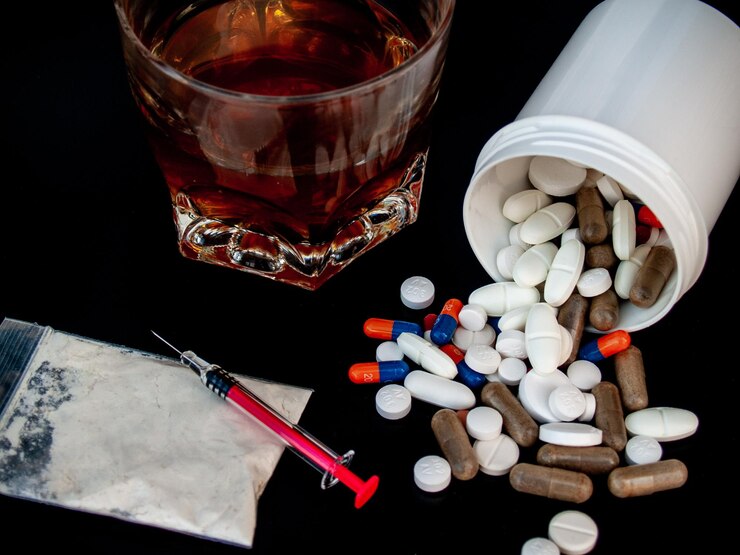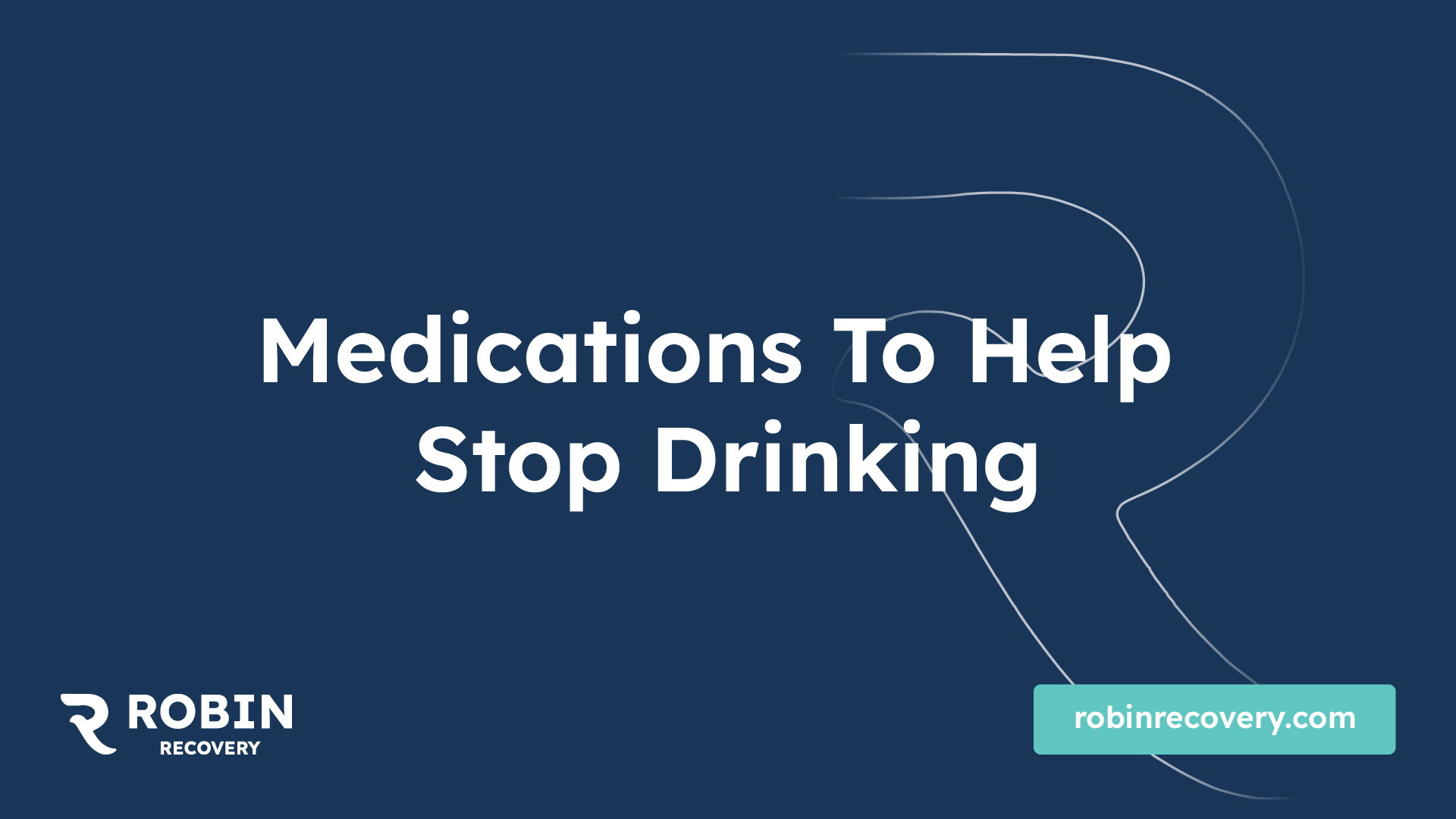Medications To Help Stop Drinking

Medications for Alcohol Use Disorder
Alcohol use disorder (AUD) is a significant concern that affects many individuals and families. In 2020, the SAMHSA National Helpline witnessed a 27% increase in calls, reflecting the growing need for effective treatment options. This article aims to shed light on some of the primary medications utilized in the treatment of AUD.

Overview of Treatment Options
AUD treatment involves a comprehensive approach that encompasses a variety of modalities. These may include behavioral therapies, counseling, support groups, and medications. Specifically, medications play a vital role in managing AUD as they can aid in reducing the desire to drink, block the pleasurable effects of alcohol, and alleviate withdrawal symptoms. However, it's important to note that these medications are not a cure for AUD but rather serve as an assistive tool in the recovery process.
Oral Medications for Alcohol Use Disorder
Among the primary treatment options for AUD, oral medications such as disulfiram, naltrexone, and acamprosate are commonly prescribed. These three medications have been approved by the U.S. Food and Drug Administration for the treatment of alcohol dependence.
Disulfiram works by causing unpleasant reactions when alcohol is consumed, thereby deterring individuals from drinking. Naltrexone serves to block the euphoric feelings and intoxication, which alcohol typically induces, thus making drinking less appealing. Lastly, acamprosate is used to combat the cravings for alcohol, helping individuals maintain abstinence.
By understanding the roles and mechanisms of these medications, healthcare providers can tailor treatment plans to individual needs, ultimately aiding in the journey towards sobriety. It is crucial, however, that these medications are taken under the supervision of a healthcare provider, as they can have side effects and interact with other medications.
Commonly Used Medications
When it comes to medications to help stop drinking, three drugs, Disulfiram, Naltrexone, and Acamprosate, have received FDA approval for alcohol use disorder. They each work in a unique way to assist individuals either quit drinking or reduce alcohol consumption [4]. In this section, we will examine each of these medications and their distinct mechanisms of action.
Disulfiram
Disulfiram is an oral medication frequently used in the treatment of alcohol use disorder. This drug acts as an alcohol blocker, causing an unpleasant reaction if alcohol is consumed, which in turn discourages drinking. The medication is usually taken as a tablet in the morning.
When a person consumes alcohol while taking Disulfiram, they can experience severe symptoms such as nausea, vomiting, headache, chest pain, and difficulty breathing. This aversive reaction is designed to deter further alcohol consumption.
Naltrexone
Naltrexone is another commonly used medication for alcohol use disorder. It is an opioid blocker that works by blocking the rewarding effects of alcohol, making it less enjoyable and reducing cravings. It can be taken as a once-daily tablet or a once-monthly injection [5].
The effectiveness of Naltrexone can vary between individuals, with some people reporting significant reductions in alcohol cravings, while others may notice less of an effect. It's important to remember that this medication is most effective when used in combination with other forms of treatment, such as counseling or support groups.
Acamprosate
Acamprosate is another FDA-approved medication for the treatment of alcohol use disorder. This medication may help correct alcohol-induced changes in brain chemistry and reduce symptoms of alcohol withdrawal and cravings. It is usually taken as a tablet, starting after quitting drinking [5].
While Acamprosate can be effective in reducing alcohol cravings, it does not prevent the withdrawal symptoms that may occur in individuals who abruptly stop heavy drinking. It is most effective when used as part of a comprehensive treatment program that includes counseling and attendance at support group meetings.
These medications, when used appropriately and in conjunction with other treatments, can play a vital role in the journey towards sobriety. It's crucial to remember that each individual's path to recovery is unique, and what works best will depend on the person's specific needs and circumstances. It's also important to consult with a healthcare professional to discuss these options and decide on the best course of action.
Effectiveness and Considerations
Understanding the effectiveness of various medications to help stop drinking is vital for individuals aiming for sobriety. This section delves into the roles of Naltrexone, Acamprosate, and Disulfiram in managing alcohol use disorder.
Role of Naltrexone in Reducing Cravings
Naltrexone is an anticraving agent that plays a crucial role in reducing relapse rates and cravings, and in increasing abstinence rates.
It is typically used to help alcoholics stay alcohol-free as part of a comprehensive program that may include counseling, attending support group meetings, and other treatments recommended by doctors [6].
Naltrexone works by blocking the effects of narcotics, including the "high" feeling that may make individuals want to use alcohol. It will not produce any narcotic-like effects or cause mental or physical dependence [6].
However, Naltrexone may increase thoughts of suicide, and individuals should monitor for signs of depression as the drug may cause serious problems with the liver. It does not prevent impairment when drinking alcohol, and it is advised not to take Naltrexone to drive or perform other activities while under the influence of alcohol [6].
Research suggests that Naltrexone works best for individuals who have abstained from alcohol for at least 4 days before beginning treatment. It can help in reducing heavy drinking days and overall alcohol consumption, not solely focused on complete abstinence.
Acamprosate for Easing Withdrawal Symptoms
Acamprosate plays a significant role in easing withdrawal symptoms that may persist for months after alcohol cessation by interacting with the GABA and glutamate systems in the brain. It reduces relapse rates and increases abstinence rates.
However, a drawback of Acamprosate is that it requires taking two pills three times a day, which might be hard to adhere to for some individuals.
Disulfiram's Mechanism of Action
Disulfiram is an alcohol blocker that changes how the body processes alcohol. It causes an unpleasant reaction if alcohol is consumed, discouraging individuals from drinking. It is usually taken as a tablet in the morning.
Each of these medications, Disulfiram, Naltrexone, and Acamprosate, work differently to help individuals either stop drinking or reduce alcohol consumption. They have been approved by the FDA for treating alcohol use disorder [4].
It's essential to discuss these options with a healthcare provider to determine the best course of action, considering the person's unique circumstances, and to have regular check-ups while on these medications. The ultimate goal is to support individuals on their path to sobriety.
Additional Medication Options
Apart from the commonly used medications for alcohol use disorder, there are additional options that can help individuals on their path to sobriety. Some of these include gabapentin and topiramate, serotonergic agents, and anticonvulsants.
Gabapentin and Topiramate
Gabapentin and topiramate, originally approved for treating seizures, have shown promise as off-label options for the treatment of alcohol use disorder. These drugs interact with GABA and glutamate systems in the brain, which are believed to play a crucial role in alcohol dependence. Studies indicate that these medications may help individuals reduce alcohol consumption, prevent drinking, and manage cravings effectively.
Serotonergic Agents
Another group of medications that can be considered are the serotonergic agents. These include drugs such as fluoxetine and ondansetron, which work by modulating the serotonin system in the brain. Recent studies suggest that these agents can increase abstinence rates and decrease alcohol consumption.
Anticonvulsants
Anticonvulsants, such as topiramate, have been found to be effective in initiating abstinence and reducing heavy drinking in individuals with alcohol dependence. Like gabapentin, topiramate interacts with the brain's GABA and glutamate systems, which are involved in alcohol dependence. This interaction helps manage cravings and reduce alcohol consumption.
While these medications are not the first-line options for treating alcohol use disorder, they can be considered in certain cases, especially when conventional treatment options have not yielded successful results. It's important to note that these medications should always be used under the supervision of a healthcare provider, who can monitor the patient's progress and manage any potential side effects. As with all treatments for alcohol use disorder, medication should ideally be combined with counseling or other forms of therapy to address the underlying issues contributing to the disorder.
Treatment Approaches and Challenges
Successfully overcoming alcohol use disorder requires a multifaceted approach. This often involves integrating medications with counseling, understanding the long-term efficacy of such treatments, and tackling the challenges related to the availability and access to these crucial medications.
Integrating Medications with Counseling
In the case of alcohol use disorder, treatment often involves a combination of medication and counseling. This is because medications can help manage the physical symptoms and cravings associated with alcohol withdrawal, while counseling can provide the necessary psychological support and coping mechanisms. However, historically, addiction treatment in the U.S. has been separated from the rest of healthcare, addressed in physically and organizationally distinct institutions, often without medical providers.
Long-Term Efficacy and Counseling
For those suffering from alcohol use disorder, the effectiveness of medications can vary depending on the severity of their condition, their commitment to recovery, and their ongoing access to counseling and support. Some patients with AUD may be able to receive treatment in primary care via brief interventions and FDA-approved AUD medications, while others with more severe AUD or with mental health comorbidities will likely need a referral to specialty behavioral and pharmacologic care [8].
Availability and Access to Medications
Despite the proven effectiveness of medications to help stop drinking, the availability and access to such medications remain a significant challenge. Only about 7.6% of adults who had alcohol use disorder in the past year accessed any kind of treatment. Furthermore, overall use of medications for the treatment of alcohol and opioid use disorder in the USA remains low, with only 16.3% of specialty treatment programs offering any single medication for alcohol use disorder treatment in 2017 [7].
Several strategies to increase the availability of alcohol and opioid use disorder medications have been suggested. These include incorporating substance use disorder training in healthcare education programs, educating the substance use disorder workforce about the benefits of medication treatment, reducing stigma surrounding the use of medications, implementing medications in primary care settings, implementing integrated care models, revising regulations on methadone and buprenorphine, improving health insurance coverage of medications, and developing novel medications for the treatment of substance use disorder [7].
Addressing these challenges is crucial for improving the success rates of alcohol use disorder treatment and helping more individuals on their path to sobriety.
References
[1]: https://www.samhsa.gov/find-help/national-helpline
[2]: https://www.mayoclinic.org/diseases-conditions/alcohol-use-disorder/diagnosis-treatment/drc-20369250
[3]: https://www.aafp.org/pubs/afp/issues/2005/1101/p1775.html
[4]: https://www.webmd.com/mental-health/addiction/features/fighting-alcoholism-with-medications
[5]: https://www.goodrx.com/conditions/alcohol-use-disorder/which-medications-are-the-best-to-stop-drinking
[6]: https://www.mayoclinic.org/drugs-supplements/naltrexone-oral-route/precautions/drg-20068408?p=1
[7]: https://www.ncbi.nlm.nih.gov/pmc/articles/PMC7007488/
[8]: https://www.niaaa.nih.gov/health-professionals-communities/core-resource-on-alcohol/make-referrals-connect-patients-alcohol-treatment-meets-their-needs
